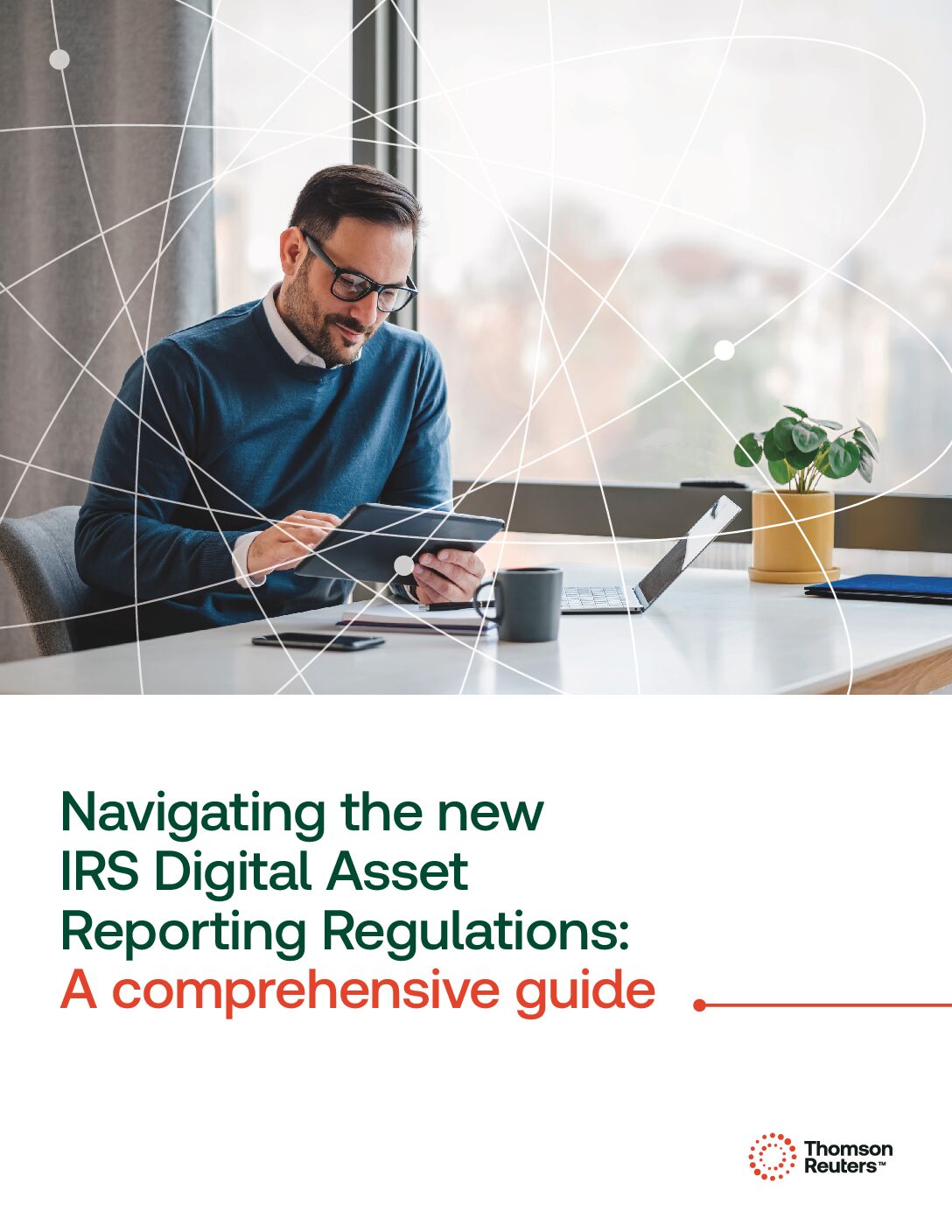Jump to ↓
| Year-end tax strategy #1: Set engagements and expectations for next year |
| Year-end tax strategy #2: Address economic pressures that are top of mind |
| Year-end tax strategy #3: Advise on tax planning topics |
| Demonstrate your expertise this tax planning season |
As the year comes to a close, most accounting firms are guiding clients through the complexities of year-end tax planning. In the midst of this busy time, it’s important to think ahead and start preparing for changes that can bring longevity and success to your firm in the year ahead.
In this blog, we’ll explore why it’s worth your time to think strategically about client engagements and expectations for the year ahead, and how to shift your business model to address your clients’ top priorities in an advisory capacity.
Year-end tax strategy #1: Set engagements and expectations for next year
Review your scope and pricing
Today, clients expect more from their accounting firms, and accountants need to make sure that their pricing model follows suit. This is important not only because of the value you can bring to clients year-round, but to address other pressures that come from increased operating costs.
As Paul Miller, owner and founder of Business by Design, explains: “So for 2026…[if you] are going to be my client at the bare minimum come January 2026, we should have a contract says this is what we’re going to do in 2026.”
If you reset your pricing to 20% higher, for example, you might lose a handful of clients but gain the bandwidth to better serve the ones who remain. Or, you might consider switching to a value pricing model. Use the year-end to communicate the scope of what you will offer in 2026 and what is expected in terms of billing in the year ahead.
Schedule anticipated client touchpoints
The end of the year presents an opportunity to determine client touchpoints for the year ahead. Often, clients end up running the firm because you are waiting on their data. However, by communicating predetermined touchpoints with your clients, you can eliminate uncertainty come tax season. Tell them what you expect from them (and when) to ensure they are “tax ready” for 2026.
Create consumable content on-demand
Take stock of the topics you commonly address with clients at year-end. From there, create on-demand blogs or videos on these topics that clients can consume in their own time.
Videos and online meetings can be a great way to explain more nuanced tax concepts. These recorded resources replicate your firm’s best practices and ensure that your clients can get their questions answered while saving you time.
 |
Report QuizThomson Reuters Advisory Report Quiz Gain a comprehensive understanding of your firm’s advisory journey today. |
Year-end tax strategy #2: Address economic pressures that are top of mind
Cash flow
It’s not that people aren’t making money in today’s economic environment — it’s just that they may not be as profitable as they once were. With pricing increases, more and more businesses are thinking about having some kind of cash flow budget. Consider addressing this topic at year-end and in consumable content throughout the next year.
Staffing
We all know the struggle with finding and retaining staff. Clients are having the same issues with maintaining or growing their revenue with fewer people. Address this topic during year-end conversations and create 10-to-15-minute videos with tips that clients can consume on their own time during the year ahead.
Business transitions and succession
With more and more clients wondering how long they want to run their business, understanding how to build a succession plan is key. Think of creative ways to transition your business clients and have these tools readily available.
- There are many ways to position their goals from a tax perspective and implement a strong succession strategy. Both traditional and nontraditional transition plans are valuable conversation topics now and throughout the year.
Year-end tax strategy #3: Advise on tax planning topics
As you begin to shift to an advisory business model, it’s important to start looking at your clients’ taxes as a multi-year consideration. Broaden your year-end discussion to include advice that extends several years ahead and looks at the full picture by suggesting what levers to pull in various scenarios.
As Shaun Hunley, executive editor of PPC products for the Tax Professionals business at Thomson Reuters, notes: “I do a positive spin legislation is an opportunity for new advisory type conversations and engagements.” This perspective becomes especially relevant when considering upcoming tax changes and their implications for your clients.
Miller reinforces this advisory approach: “Our role as advisors is to kind of know what levers to pull, when to pull them and how far to pull them. OK. That’s what we get paid to do. We don’t get paid to do tax returns…That’s part of the relationship. It’s the other thing.”
OBBBA: The new era of business tax reform—What you need to know for 2026
With the passage of the Organization for Business and Budget Balance Act (OBBBA), the landscape for business tax planning has shifted dramatically for 2026 and beyond. The OBBBA introduces sweeping changes to corporate tax rates, deductions, and compliance requirements, replacing many provisions of the expiring TCJA. Key elements include:
- Corporate tax rate adjustment: The OBBBA sets a new baseline corporate tax rate, with targeted incentives for small and mid-sized businesses investing in workforce development and green technologies.
- Deduction reforms: Several popular deductions under the TCJA have been modified or replaced, including limits on interest expense and bonus depreciation. The OBBBA introduces new deductions for qualifying domestic investments and R&D.
- Compliance modernization: Enhanced reporting standards and digital filing requirements are now mandatory, with penalties for non-compliance increasing substantially.
- Transition guidance: Businesses must carefully review transitional rules to avoid pitfalls as TCJA sunsets and OBBBA provisions take effect.
Why it matters: The OBBBA is designed to promote sustainable growth and fiscal responsibility, but it also brings complexity. Firms must proactively advise clients on how to restructure transactions, update compliance processes, and maximize new incentives to stay competitive in 2026.
Additional timely tax planning topics
OBBBA beneficial ownership rules: Transparency and compliance in focus
The OBBBA introduces a new framework for beneficial ownership reporting, superseding the Corporate Transparency Act. All entities formed or registered to do business in the U.S. must now disclose beneficial ownership information annually, with stricter definitions and expanded enforcement.
- Annual reporting: Entities must file updated beneficial ownership reports each year, not just at formation.
- Expanded definitions: The OBBBA broadens the scope of who qualifies as a beneficial owner, including indirect and contingent interests.
- Enforcement and penalties: Failure to comply can result in significant fines and potential criminal liability, with federal agencies given new authority to audit and investigate.
- Client advisory: Firms should help clients identify all relevant owners, update internal records, and prepare for ongoing compliance reviews.
Why it matters: The OBBBA’s beneficial ownership rules are designed to combat financial crimes and increase transparency, but they also require a new level of diligence from businesses and their advisors. Early preparation will help clients avoid costly mistakes and regulatory scrutiny.
Digital asset reporting
As part of the Infrastructure Investment and Jobs Act (IIJA), the IRS issued final regulations regarding the reporting requirements for brokers of digital assets. These regulations are designed to align digital asset reporting with the existing standards applied to traditional financial services.
Under the new standards, brokers will be required to:
- Report gross proceeds from digital asset sales starting in 2026 for transactions occurring in 2025.
- Report tax basis information for certain digital asset sales made in 2026, beginning in 2027.
Broadly speaking, the regulations require custodial brokers to file Form 1099-DA (Digital Asset Proceeds From Broker Transactions) and furnish payee statements reporting gross proceeds and, in certain circumstances, adjusted basis on sales of digital assets affected for customers.
According to the IRS, the regulations are intended to make digital asset investors aware of their taxable transactions and to make those transactions more transparent to the IRS — which is why tax and accounting professionals must take time now to prepare and adjust their processes accordingly.
Demonstrate your expertise this tax planning season
To learn how to make the most of year-end tax planning and all the ways advisory services can transform how you serve your clients, check out our 2025 year-end tax strategy planning webcast. If you’re interested in expanding into advisory services, learn more about Practice Forward to strengthen your client relationships today.
 |
|
 |
|







